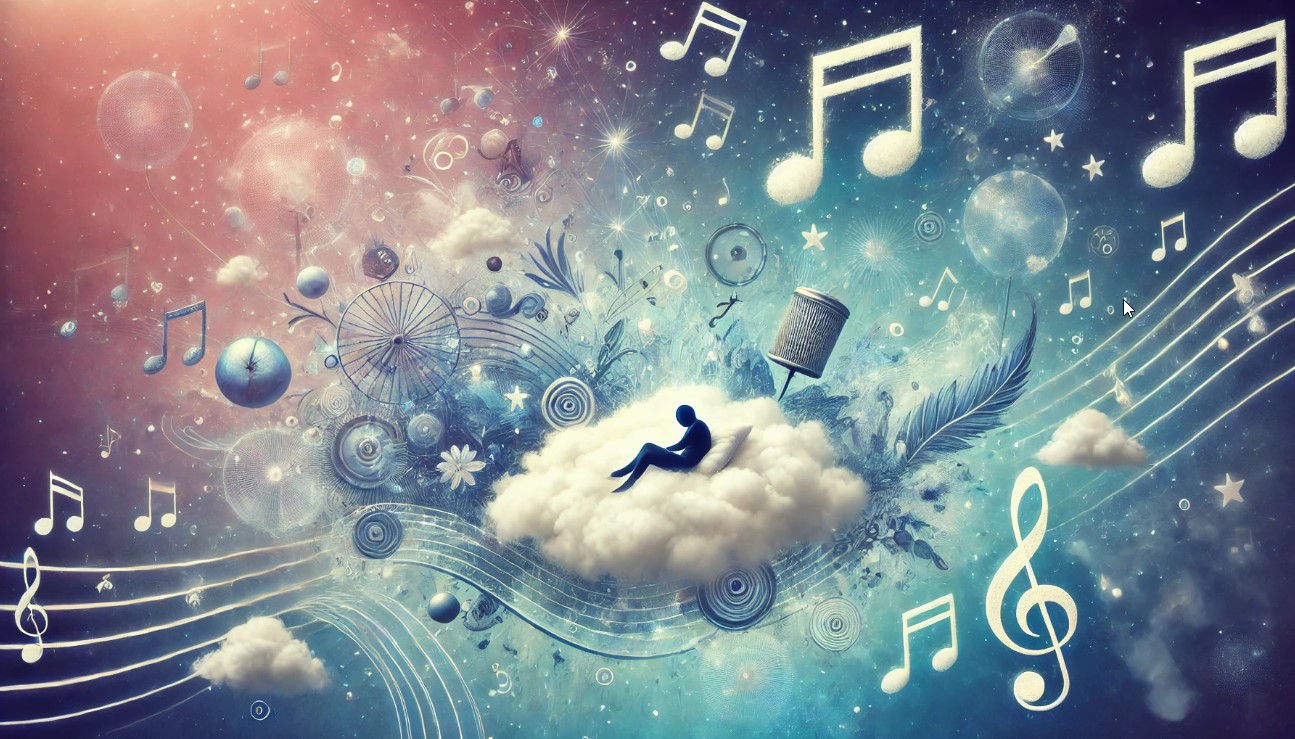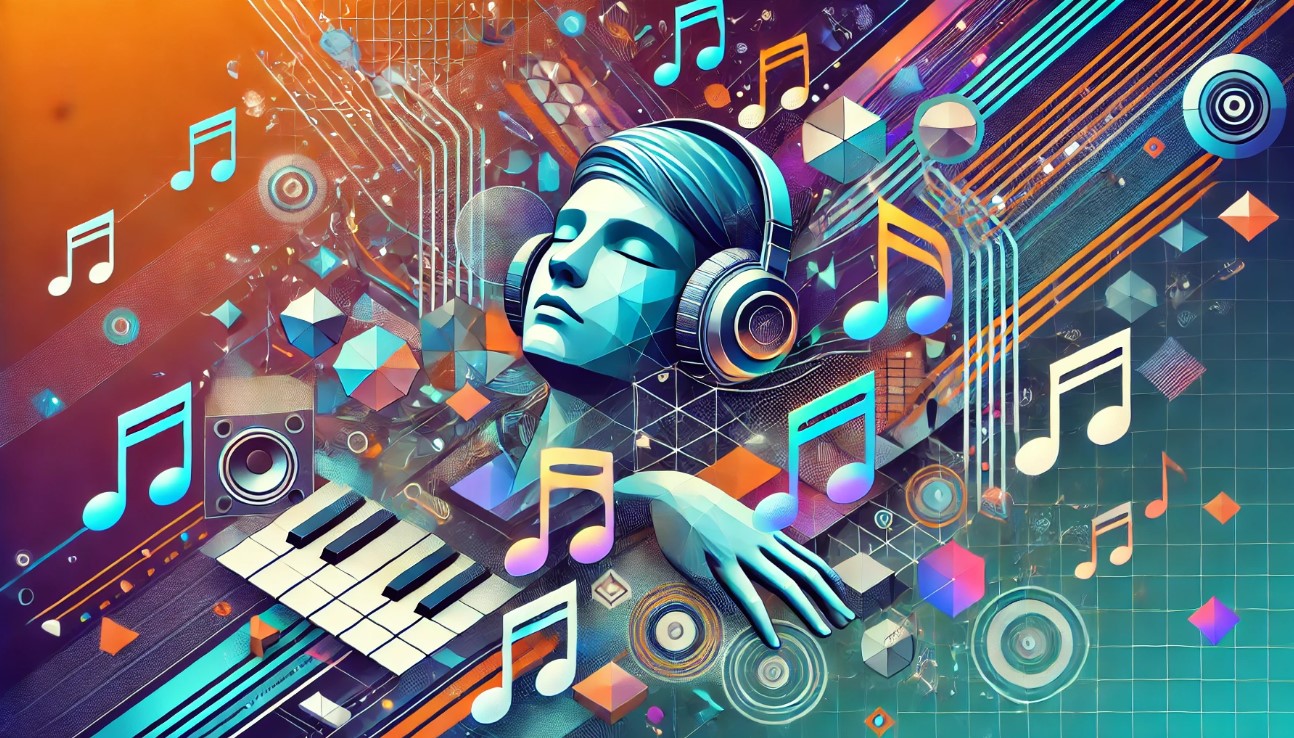Is It Rare to Hear Music in Dreams?
Today, we are exploring a fascinating and somewhat mystical topic: hearing music in dreams. This phenomenon raises intriguing questions about the nature of our subconscious mind and its connection to music. Is hearing music in dreams rare, or is it something that happens to many of us? Let’s dive deep into this captivating subject to uncover the mysteries of music in our dream world.

Understanding Dreams and Music
Dreams are a natural part of the human sleep cycle, occurring primarily during the rapid eye movement (REM) stage of sleep. During this phase, our brains are highly active, processing emotions, memories, and experiences. This dream activity often includes various sensory experiences, such as visuals, sounds, and even emotions. But what about music?
Hearing music in dreams can be an incredibly vivid and emotional experience. This phenomenon can range from hearing a familiar song to composing entirely new pieces of music. The music experienced in dreams often feels remarkably real, sometimes even more intense than when we are awake. But how common is this experience?
Is Hearing Music in Dreams Rare?
The prevalence of hearing music in dreams varies among individuals. Studies and anecdotal evidence suggest that while it is not extremely common, it is not particularly rare either. Research indicates that around 40% to 50% of people report having heard music in their dreams at some point in their lives. However, the frequency and clarity of these musical dreams can differ widely.
Several factors can influence the likelihood of experiencing music in dreams. People who are more musically inclined, such as musicians, composers, or avid music listeners, tend to report hearing music in their dreams more often. This correlation suggests that a person’s exposure to and engagement with music during waking hours can carry over into their dream life.
The Science Behind Music in Dreams
The brain’s ability to recreate and even compose music in dreams is a testament to its remarkable processing power and creativity. During REM sleep, the brain is actively consolidating memories and emotions, often leading to the reactivation of neural circuits associated with those memories. For musicians or those who deeply engage with music, these neural circuits might include intricate musical patterns and compositions.
Neurologically, the auditory cortex, which processes sound, remains active during sleep. This activity allows for the creation of auditory experiences, including music. Additionally, the limbic system, which governs emotions, can enhance the emotional intensity of these musical experiences in dreams. This combination of auditory and emotional processing can make the music heard in dreams feel exceptionally vivid and moving.
Personal and Cultural Influences
Personal experiences and cultural background can significantly influence whether and how music appears in dreams. These factors shape our relationship with music, impacting the likelihood of it appearing in our subconscious states.
Personal Experiences and Emotional Connections
Individuals who have strong emotional connections to certain songs or genres may find these elements more likely to surface in their dreams. For example, a song associated with a significant life event—such as a wedding, a loved one’s favourite tune, or a song that played during a pivotal moment—can leave a lasting imprint on the subconscious. When such a song appears in a dream, it often carries the emotional weight and context from the waking life, making the dream experience particularly vivid and impactful.
Musicians and avid music listeners are especially prone to dreaming about music. Their constant engagement with music means their brains are regularly processing and internalizing musical structures, themes, and emotional responses. This deep familiarity can translate into dreams where they might hear, perform, or even create new music, reflecting their intense personal connection to the art form.
Cultural Exposure to Music
Cultural background also plays a crucial role in the presence of music in dreams. Different cultures have unique relationships with music, often integrating it deeply into daily life, rituals, and communal activities. For instance, in cultures where music is a central part of festivals, religious ceremonies, or communal gatherings, individuals might be more likely to dream about music due to its pervasive presence in their waking life.
In cultures with rich musical traditions, individuals might dream about traditional instruments, melodies, or performances that are part of their heritage. These dreams can serve as a continuation of the cultural narratives and experiences that define their identity. For example, someone from a culture with a strong tradition of folk music might dream about folk songs, dances, or instruments, reflecting the deep-seated cultural memories and emotions associated with these musical forms.
The Influence of Media and Technology
In the modern world, media and technology further amplify cultural exposure to music. People are constantly bombarded with music through various channels such as television, movies, social media, and streaming platforms. This constant exposure can seep into the subconscious, making music a more frequent element in dreams. Popular songs, jingles, and even background scores from movies or TV shows can appear in dreams, often influenced by the media content consumed during waking hours.
Music as a Symbolic Element in Dreams
Music in dreams can also carry symbolic meanings influenced by personal and cultural contexts. A song might symbolize a particular emotion, a phase in life, or a relationship. For instance, dreaming of a lullaby might evoke feelings of comfort and nostalgia, whereas a fast-paced dance track might symbolize excitement or a desire for freedom. These symbolic representations are shaped by personal experiences and cultural understandings of music and its role in life.
Enhancing Dream Recall and Cultural Resonance
Understanding the personal and cultural influences on musical dreams can also help individuals enhance their dream recall and resonance. By engaging more deeply with music that holds personal or cultural significance before sleep, individuals might increase the likelihood of these elements appearing in their dreams. This can be a deliberate practice, such as listening to culturally significant music, participating in musical traditions, or simply reflecting on the emotional impact of certain songs before going to bed.

Enhancing Musical Dreams
If you are interested in experiencing music in your dreams, there are several techniques you can try to enhance the likelihood of these auditory experiences. Deliberately immersing yourself in musical activities before bed and adopting certain practices can help bridge the gap between your waking and dreaming states, making musical dreams more frequent and vivid.
Immersing Yourself in Music Before Bed
One effective approach to enhancing musical dreams is to immerse yourself in music before bedtime. This can be done in several ways:
Listening to Your Favourite Songs: Create a playlist of your favourite songs or pieces of music that you find particularly moving or memorable. Listen to this playlist as part of your nightly routine. The emotional and cognitive engagement with the music can increase the likelihood of these melodies surfacing in your dreams.
Playing an Instrument: If you play a musical instrument, spending some time practicing or improvising before bed can imprint musical patterns and emotions onto your subconscious. This active engagement can make it more likely that you’ll dream about playing music or hearing the sounds of your instrument.
Composing Music: For those who compose music, whether as a hobby or professionally, working on compositions before sleeping can also influence dream content. The creative process can lead to dreams where you continue composing, hear new melodies, or revisit musical themes from your waking life.
Creating a Musical Environment
Enhancing your sleeping environment with music can also help facilitate musical dreams. Consider the following:
Playing Soft, Instrumental Music: Play soft, instrumental music or ambient soundscapes as you fall asleep. The continuous auditory stimulation can provide a soothing backdrop that might weave its way into your dreams, especially if the music is gentle and non-intrusive.
Using a White Noise Machine with Music: Some white noise machines offer options that include soft musical sounds. Using these can create a calming atmosphere conducive to sleep while subtly influencing your dream content with musical elements.
Keeping a Dream Journal
Another powerful technique for enhancing musical dreams is keeping a dream journal. This practice involves:
Recording Dreams Immediately Upon Waking: Keep a notebook and pen by your bedside and write down your dreams as soon as you wake up. Include as many details as possible, paying special attention to any musical elements. Note the songs, instruments, or any other auditory experiences you remember.
Identifying Patterns: Over time, review your dream journal to identify patterns or recurring themes, including music. Recognizing these patterns can increase your awareness of how often music appears in your dreams and what types of music are most prevalent.
Enhancing Dream Recall: The act of recording your dreams can improve your overall dream recall. As you become more adept at remembering and documenting your dreams, you might find that musical elements become more prominent and frequent.
Visualisation and Meditation Techniques
Visualisation and meditation can also be beneficial for enhancing musical dreams:
Visualising Musical Experiences: Before going to sleep, spend a few minutes visualizing yourself in a musical scenario. Imagine attending a concert, playing an instrument, or listening to your favourite song in vivid detail. This focused visualization can prime your mind to incorporate similar experiences into your dreams.
Meditation with Music: Practice meditation with a musical focus. Use music as a meditation aid, concentrating on the sounds and allowing yourself to be fully immersed in the experience. This deep connection with the music can influence your subconscious mind and increase the likelihood of musical dreams.
Engaging with Music Throughout the Day
Your engagement with music during the day can also influence your dreams:
Listening to New and Diverse Music: Exploring new genres and unfamiliar music can stimulate your brain and provide fresh auditory experiences that might carry over into your dream world.
Attending Live Music Events: Live music events, such as concerts or festivals, can create powerful, memorable experiences that are likely to be revisited in your dreams due to their emotional and sensory impact.
Discussing Music with Others: Talking about music with friends or participating in music-related activities, like group listening sessions or jam sessions, can reinforce the importance of music in your daily life and increase its presence in your dream life.
By incorporating these techniques and practices into your routine, you can enhance the likelihood of experiencing music in your dreams. Whether through deliberate musical activities before bed, creating a musical environment, keeping a detailed dream journal, or engaging with music throughout the day, these strategies can help make your dreams a richer and more musically immersive experience.
